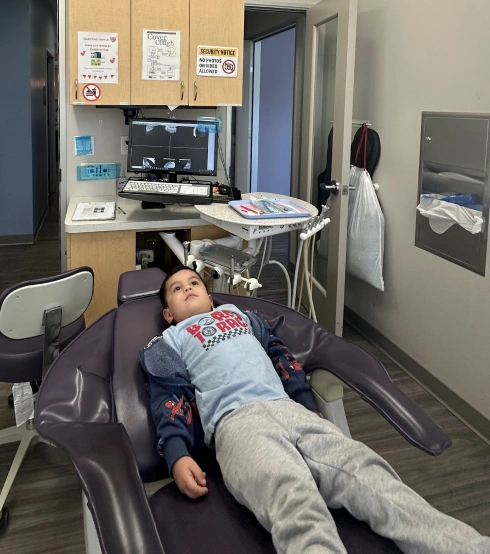contactus@caringkidsdental.com

Cavity Prevention for Children
Children around the world experience cavities, also called “childhood tooth decay” or “childhood caries.” The primary causes of these cavities are poor dental hygiene and sugar-filled diets.
Cavities can be exceptionally painful and, if left untreated, can result in decaying teeth and childhood periodontitis. Lifestyle routines can contribute greatly to your child’s overall health and prevent cavities. Ensure that your child eats a nutrient-filled diet with many varieties of food, reliably executes an oral care routine, and visits the dentist twice yearly.
How Will I Know if My Child Has a Cavity?
Cavity size—and the pain associated with cavities—varies greatly. Very small cavities might go unnoticed, while large cavities might be debilitating painful. Cavities that develop between teeth can be difficult to identify without a trained eye. The pediatric dentist’s training and imaging, such as x-rays, can determine where even exceptionally small cavities might lurk so they can be resolved more easily.
General cavity symptoms include the following:
- Increased sensitivity to cold or hot foods or drinks
- Waking and crying during the night
- Pain
- Sensitivity to spicy foods
- Toothaches
How Will I Know if My Child Has a Cavity?
Optimize Your Child’s Diet
Don’t Provide Constant Snacks
Transition Away From Using a Sippy Cup
Limit Sticky Foods
Rinse Pacifiers and Teething Toys
At Bedtime, Provide Only Water to Drink
Don’t Sweeten the Pacifier
Lead Your Child in Brushing and Flossing Twice Each Day
Determine Your Child’s Fluoride Levels
Show Up for Your Appointments
10




